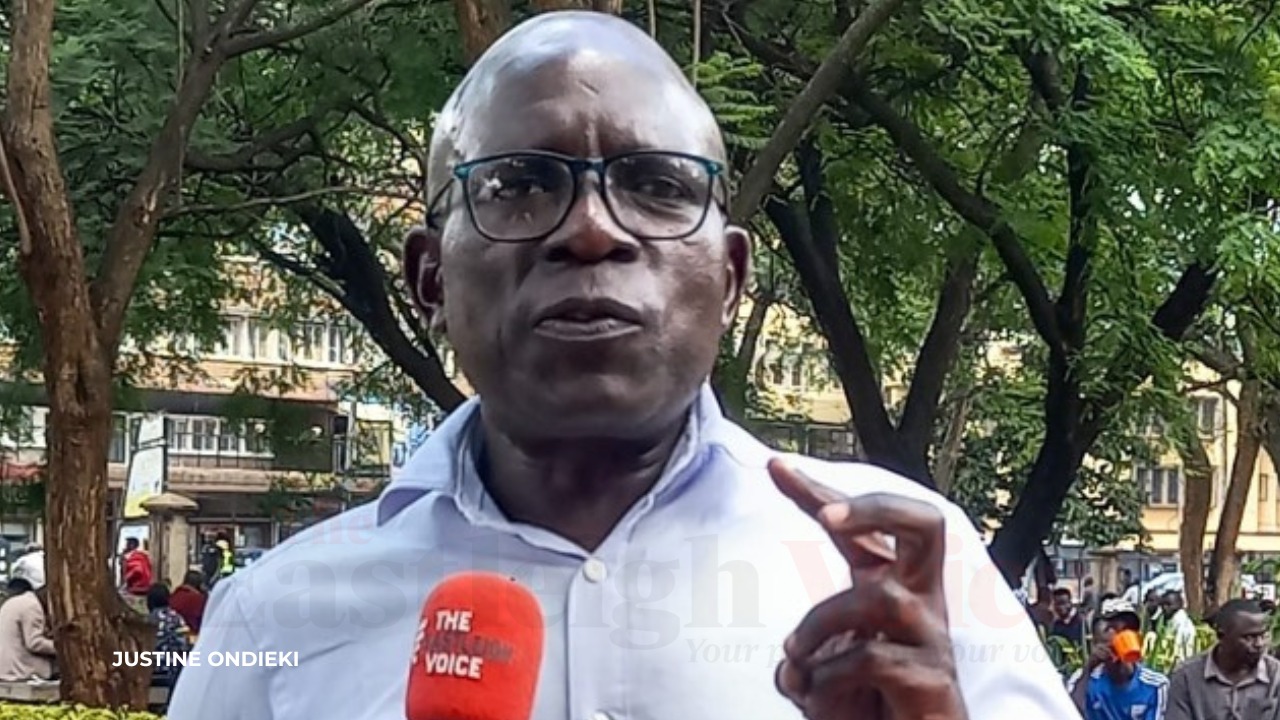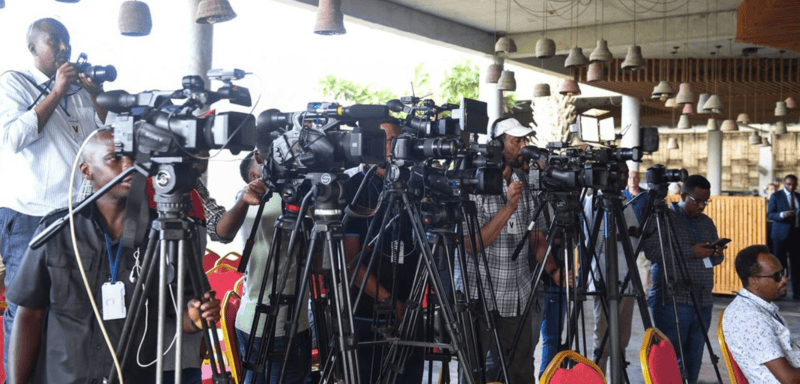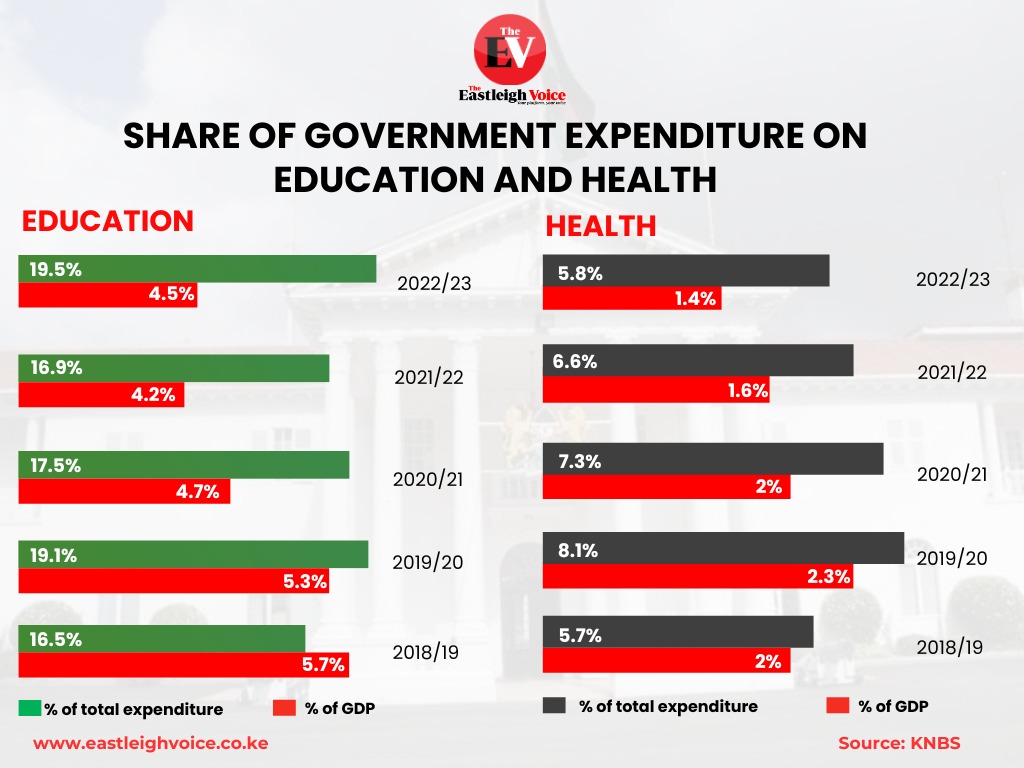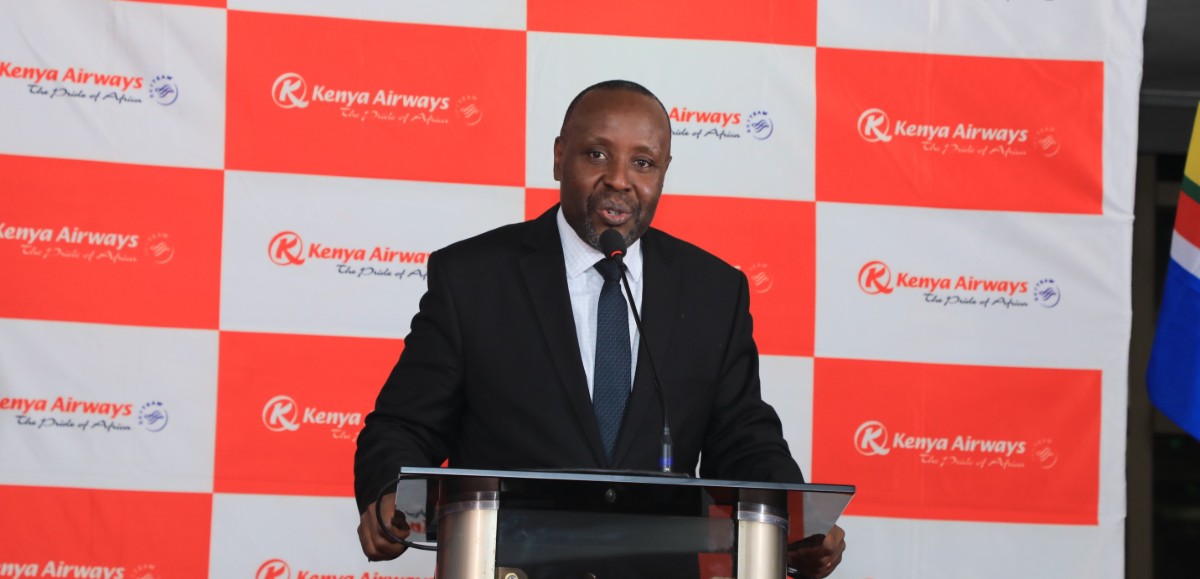How MPs voted for Finance Bill, 2024 amidst countrywide protests

Vote on the Second Reading was conducted amid countrywide mass protests as demonstrators continued to lobby MPs to reject the bill
The controversial Finance Bill, 2024 has moved to the Committee Stage after a majority of MPs in the National Assembly on Thursday voted in its favour. The Second Reading sailed through after 204 MPs voted Yes and 115 voted No.
The vote on the Second Reading was conducted amid countrywide mass protests as demonstrators continued to lobby MPs to reject it.
More To Read
- Court to hear petition challenging eligibility of Embu North MP Leo Wa Muthende
- Nominated MP Denar Hamisi is dead, National Assembly confirms
- MPs demand SHA clears Sh10 billion in pending NHIF bills within three months
- MPs push for urgent funding boost for Auditor General’s office
- Judiciary faces Sh576.6 million pending bills amid budget review
- MPs fault State officers over mismanaged road projects
Following Thursday’s vote, the Bill now moves to the Committee Stage where MPs will on Tuesday vote on each proposed amendment. A committee of the whole House will consider the Bill on a clause-by-clause basis. Any proposed amendments to the bill will be considered and a vote is taken on each. The committee will approve clauses and any schedules of the Bill, with or without amendments.
The committee is normally guided by the need to make amendments that are likely to render the bill more acceptable, practical, or efficient, without severely deviating from its primary objectives.
The committee, through its chairperson, then immediately submits a report to the House for approval.
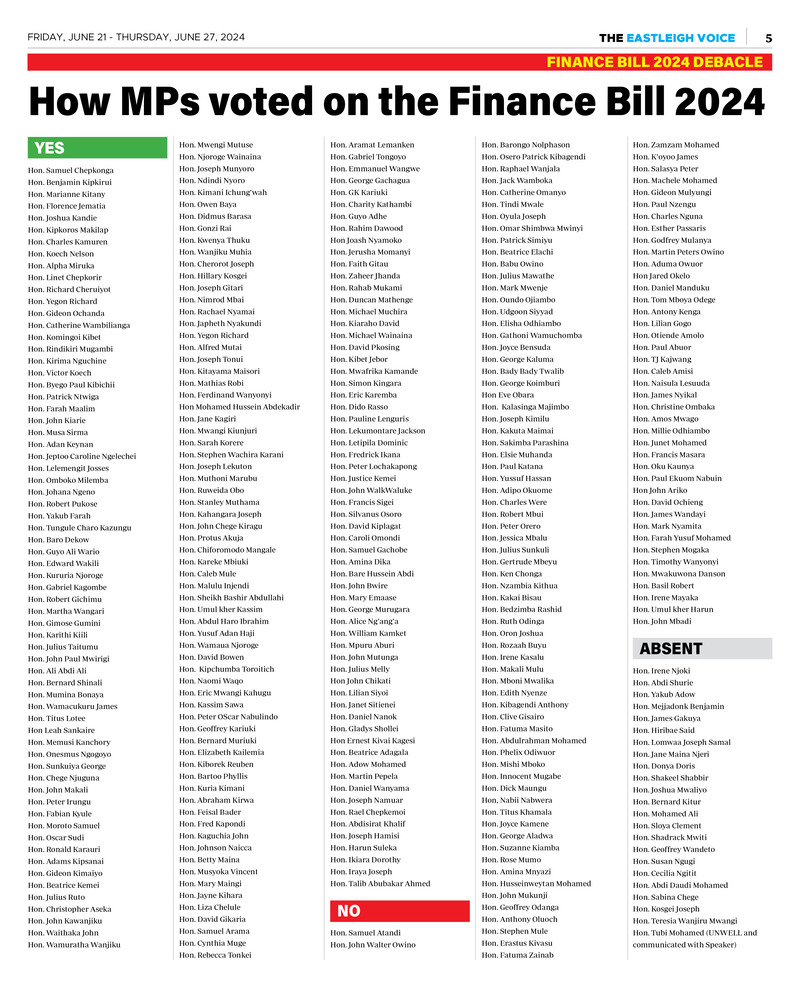 How MPs voted on the Finance Bill, 2024.
How MPs voted on the Finance Bill, 2024.
This then ushers in the Report Stage where the report is made to the whole House following a procedural motion and MPs vote on it. At this stage, any member may with reasons move the House to resolve itself into a committee again to reconsider any specified clauses of the bill. This is known as re-committal.
The bill then moves to the final stage, which is the Third Reading. At this stage, no further substantive amendments are made, though drafting of amendments and re-numbering of clauses may be accepted.
If most of the parliamentarians vote in favour of the Bill, the Speaker presents it to the President for assent in a form known as the vellum.
The President has 14 days to assent to it or refer it back to the House with some reservations.
The voting on the Finance Bill, 2024 on Thursday took place amidst street protests across several towns in the country including Nairobi, Nakuru, Eldoret, Kisumu, and Nyeri. Protestors showed up to express their anger against the Bill.
Anti-riot police, some on horseback, fired tear gas to disperse crowds of protesters on the streets of Nairobi.
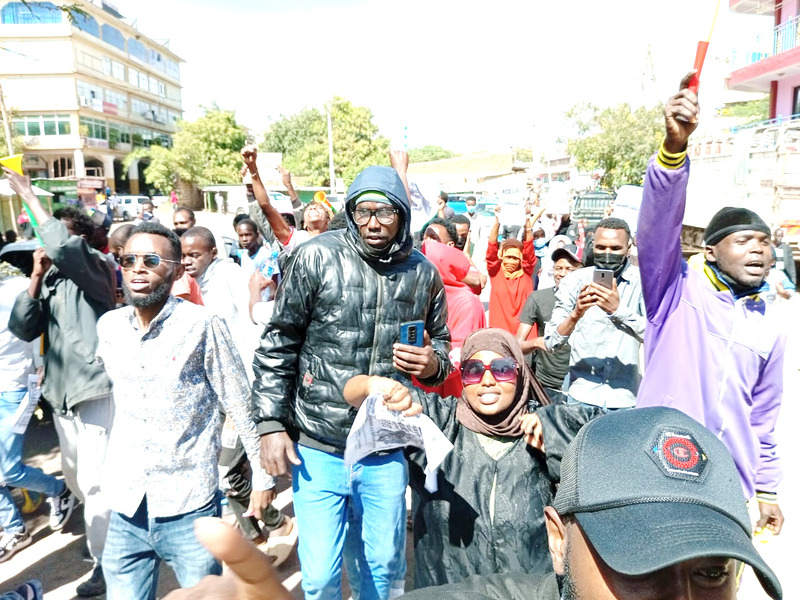 Protesters in Isiolo. (Waweru Wairimu)
Protesters in Isiolo. (Waweru Wairimu)
Unlike in the past, the current protests are being driven by young people, rather than politicians, and have been peaceful.
Social media platforms have been flooded with rallying calls, using the hashtags #OccupyParliament and #RejectFinanceBill2024, urging Kenyans to remain vigilant as MPs debate the controversial Bill.
In Eldoret, the hometown of President William Ruto, hundreds of protesters brought the city to a halt, marching through the streets and waving placards.
Similar protests erupted in other towns across the country, with Kenyans from diverse ethnic and political backgrounds united in their opposition to the proposed new and increased taxes.
In Nyeri, protesters chanted slogans like "Ruto must go!" and "It's all possible without Ruto", reflecting the widespread discontent with the government's fiscal policies and the president's leadership.
The protests are a manifestation of the widespread outrage and frustration among Kenyans over the controversial finance bill, which has introduced several unpopular tax measures.
Although the government has retreated on some of the most controversial aspects, including a 16 per cent tax on bread and an annual 2.5 per cent tax on vehicles in response to public pressure, protesters are unsatisfied and are demanding that legislators reject the Bill.
The protests, which began on Tuesday, are ongoing, with demonstrators calling for a complete overhaul of the bill which has sparked discontent across the nation since it was first presented in parliament in May.
The protesters, who were chanting anti-government slogans, accused President Ruto's administration of not listening to the cries of Kenyans who are facing a tough economic situation.
Treasury Cabinet Secretary Njuguna Ndung'u has stated that the increased taxes aim to "revitalise" the economy, generate an additional Sh346.7 billion in revenue, and alleviate debt.
Top Stories Today

